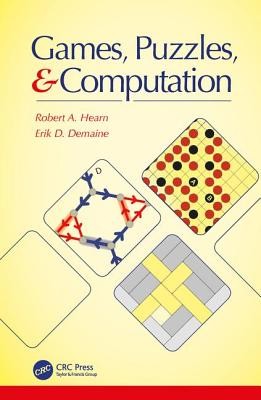
- We will send in 10–14 business days.
- Author: Robert A Hearn
- Publisher: A K PETERS
- ISBN-10: 1568813228
- ISBN-13: 9781568813226
- Format: 15.5 x 23.1 x 1.5 cm, kieti viršeliai
- Language: English
- SAVE -10% with code: EXTRA
Reviews
Description
The authors show that there are underlying mathematical reasons for why games and puzzles are challenging (and perhaps why they are so much fun). They also show that games and puzzles can serve as powerful models of computation--quite different from the usual models of automata and circuits--offering a new way of thinking about computation. The appendices provide a substantial survey of all known results in the field of game complexity, serving as a reference guide for readers interested in the computational complexity of particular games, or interested in open problems about such complexities.
EXTRA 10 % discount with code: EXTRA
The promotion ends in 23d.05:21:15
The discount code is valid when purchasing from 10 €. Discounts do not stack.
- Author: Robert A Hearn
- Publisher: A K PETERS
- ISBN-10: 1568813228
- ISBN-13: 9781568813226
- Format: 15.5 x 23.1 x 1.5 cm, kieti viršeliai
- Language: English English
The authors show that there are underlying mathematical reasons for why games and puzzles are challenging (and perhaps why they are so much fun). They also show that games and puzzles can serve as powerful models of computation--quite different from the usual models of automata and circuits--offering a new way of thinking about computation. The appendices provide a substantial survey of all known results in the field of game complexity, serving as a reference guide for readers interested in the computational complexity of particular games, or interested in open problems about such complexities.


Reviews